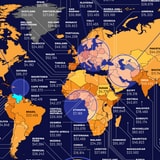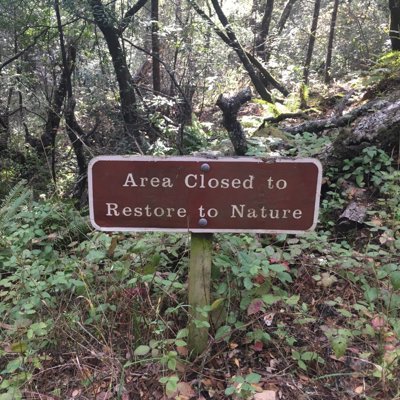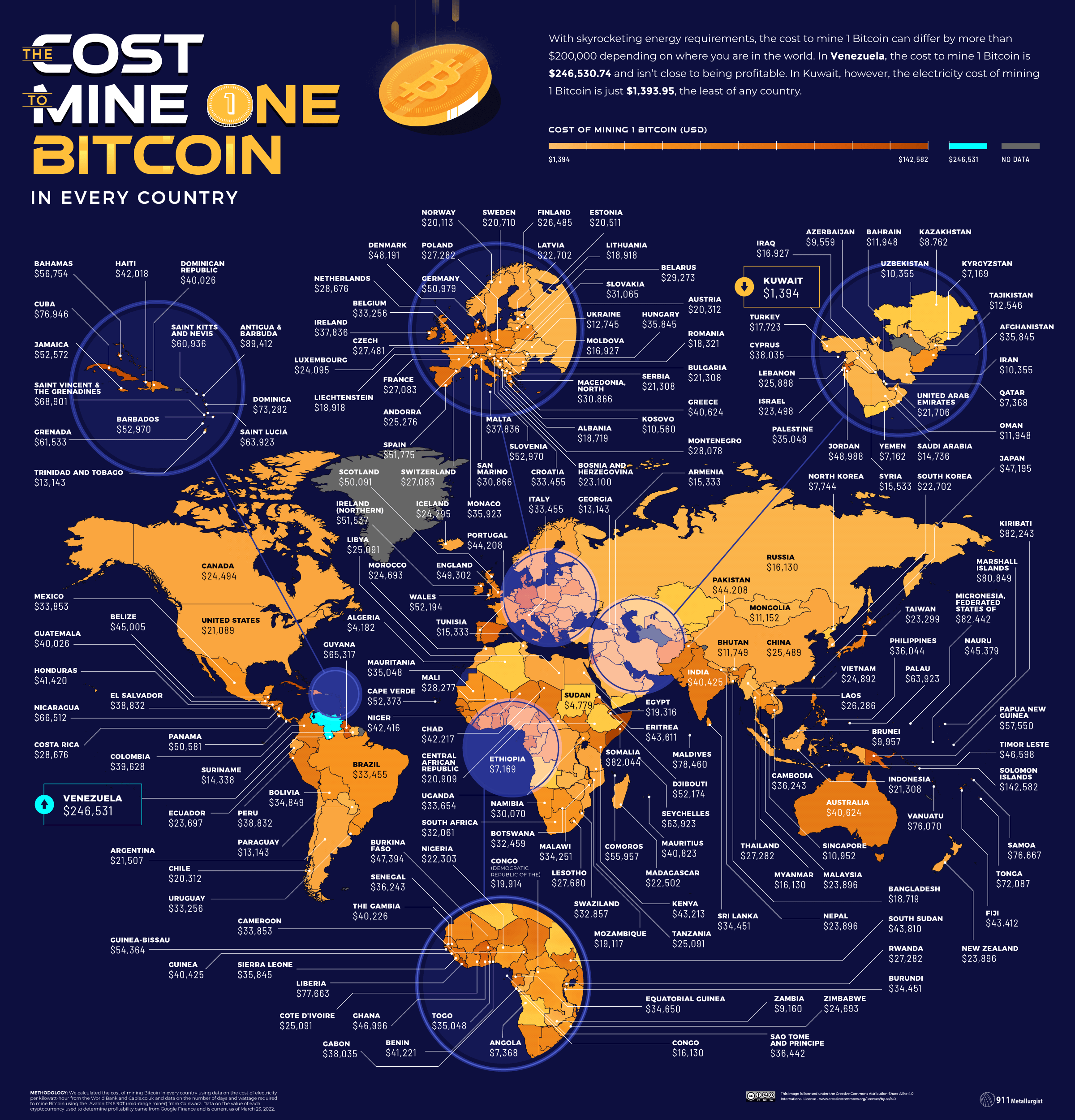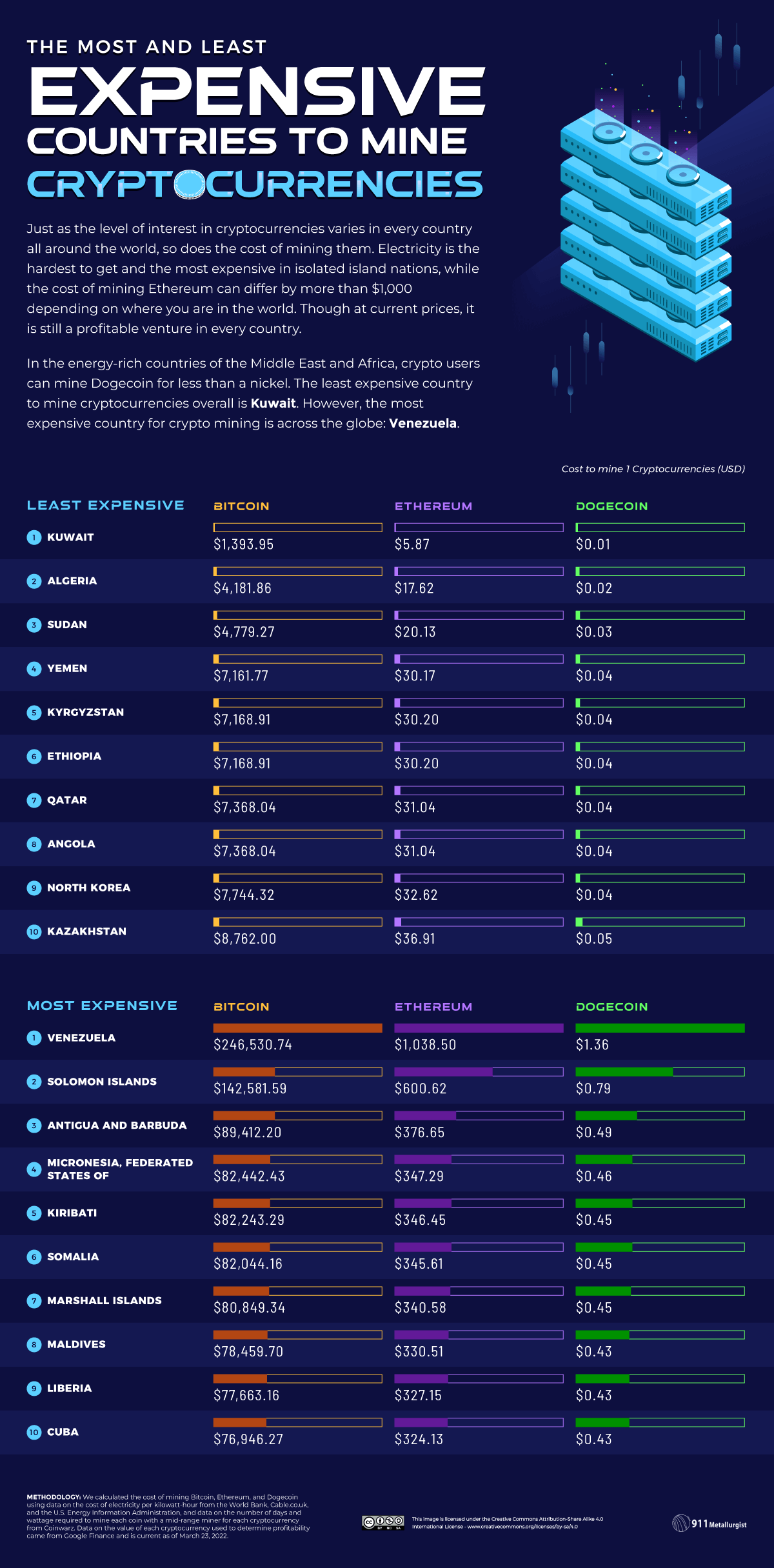
Using electricity-per-kilowatt cost data from the World Bank, US Energy Information Administration and Cable.co.uk, mineral processing organization 911metallurgist estimated how much it would cost to mine a single bitcoin around the world, and in the US — and if you'd turn a profit doing so. Here's what they found.
Key Takeaways:
-
Mining one bitcoin takes an estimated 1,449 kilowatt hours (kWh) of energy, whereas one US household consumes around 893 kWh per month on average. In North America, the average cost of one kWh is 21 cents.
-
The cost of mining one bitcoin will likely cost you more than $5,000 all over the world, except in Kuwait, Algeria and Sudan.
-
Mining bitcoin in Venezuela, Solomon Islands and Antigua and Barbuda is the most financially irresponsible thing you can do and could set you back over $69,000 in losses after factoring in electricity costs.
Click to enlarge image
Click to enlarge images
Via Visual Capitalist and 911metallurgist.





